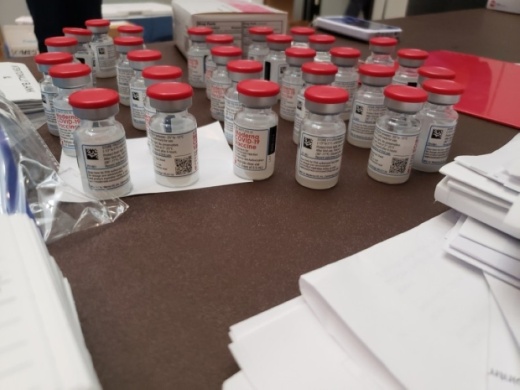In all, APH has 7,000 first doses and 7,500 second doses remaining from a state-issued allocation the week of Feb. 7. It has also received a statewide allocation of 12,000 second doses from the week of Feb. 14 after a delay of multiple days due to inclement weather and road conditions. Some 12,000 more doses are bound for APH later this week—the allocation for the week of Feb. 21.
“We lost eight days of operations, but we are fully dedicated to those who need their second doses and are scaling up resources as much as possible to provide all remaining vaccine this week,” said Cassandra DeLeon, chief administrative officer of disease prevention and health promotion for APH, in the release.
APH is currently prioritizing people due for their second vaccine dose in order to “ensure they are administered as close to the 28-day [Centers for Disease Control and Prevention] recommended interval” as possible. CDC guidance indicates that a second Moderna dose should be administered within 42 days of the first if possible, preferably closer to the 28-day mark.
With a backlog of vaccine appointments, APH said it will expand operations to more sites within the week.
“We have already provided 55,000 doses and were in the midst of scaling up operations for second doses when the winter storm hit," DeLeon said.
Other Travis County vaccine providers are also set to receive doses from the Texas Department of State Health Services this week, with UT Health Austin, several CommUnityCare locations and several Lone Star Circle of Care clinics among them. A full list of Texas providers receiving shipments this week can be found here.
As of Feb. 22, APH has also revived its COVID-19 testing operations. APH test centers were closed last week, which may skew coronavirus rates reflected on the organization’s COVID-19 tracking dashboards, according to APH. For instance, the dashboards show no reported coronavirus cases in Travis County between Feb. 13 and Feb. 20. Data entry for those tracking tools was also delayed due to the storm.
“We know that there may be a high demand for testing once our sites can reopen, and data will show that not a lot of people were tested over the past week,” APH Chief Epidemiologist Janet Pichette said. “[Staff] will have to work overtime to eliminate the backlog, but they are dedicated to giving the public the data they need.”





